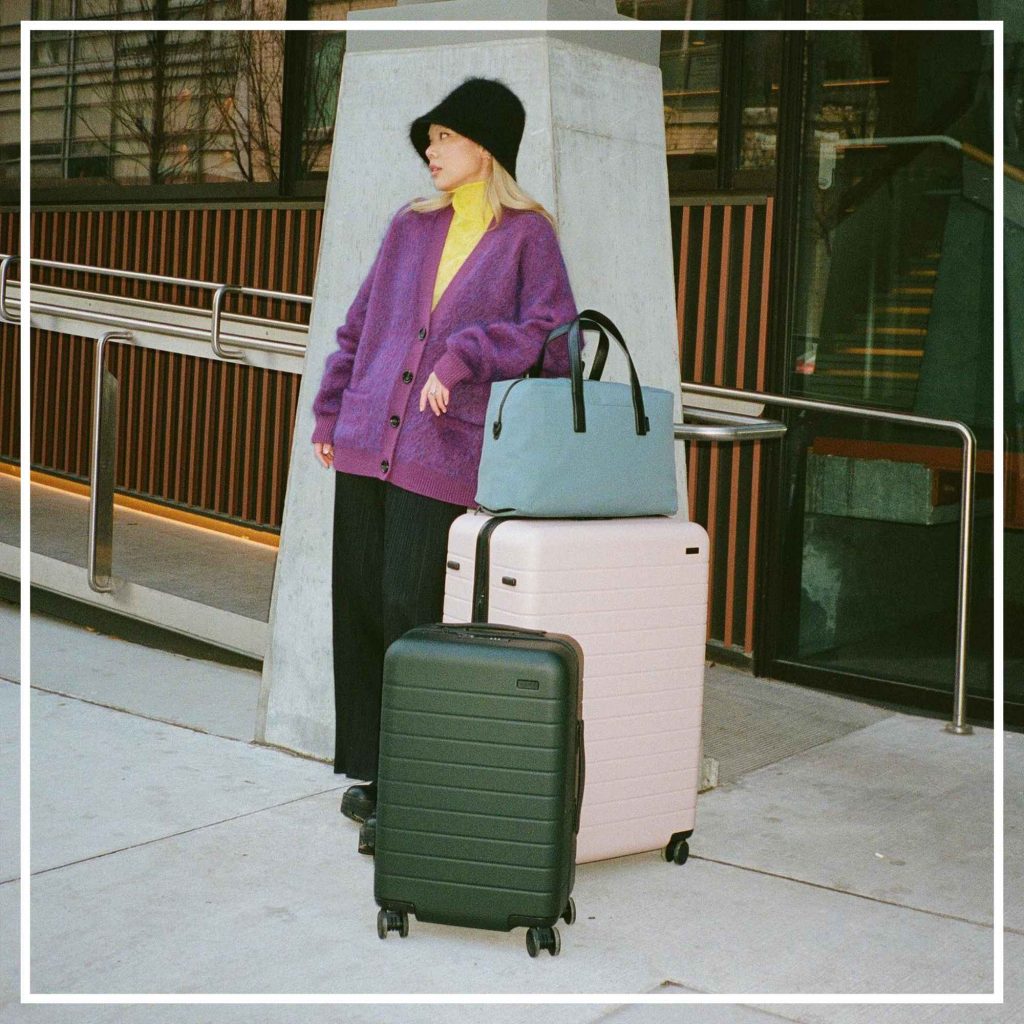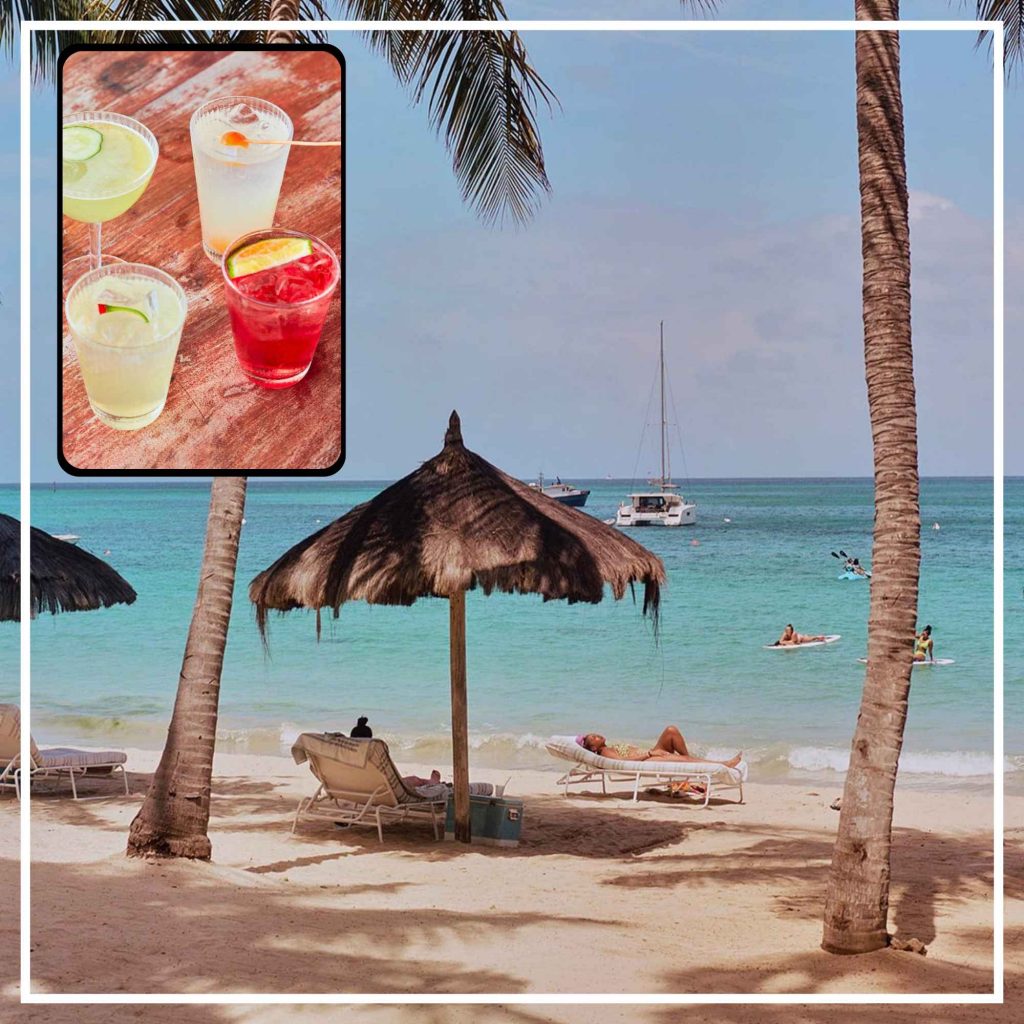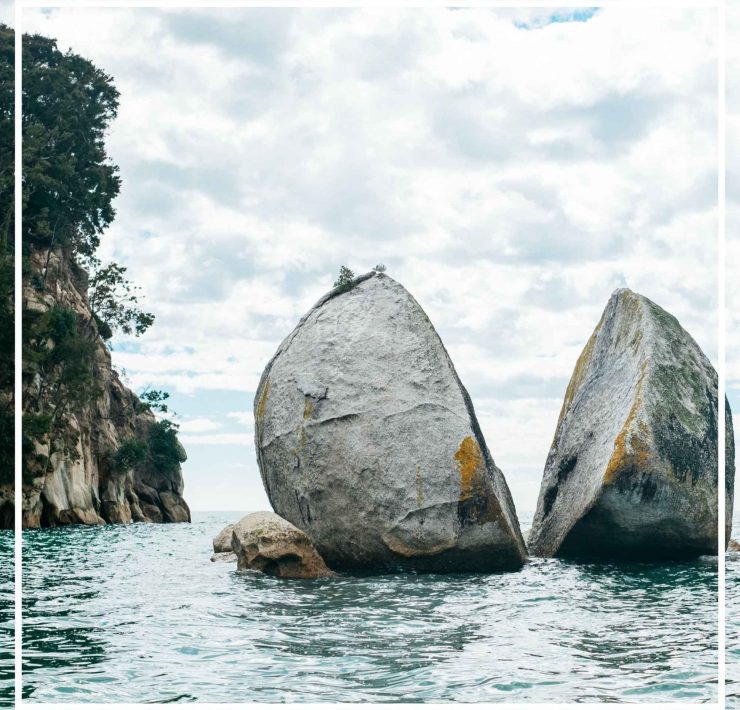The Differences Between Short-Term And Long-Term Travellers

Kate gets by in life as a music publicist but…
It doesn’t matter how you travel; what matters is that you do, in fact, travel.
Let’s not get stuck in a rut over the tiresome debate about what sets a traveller apart from a tourist, or at what point a “holiday” becomes “travel”. That’s not important. It’s a big world out there. Any spark inside you to get out and see it, you should follow with your head, heart, camera and passport.
That said, there’s no denying that one tackles a short trip and a long trip with a very different set of tools, a different philosophy, and different behaviours. As both a traveller and a holidaymaker, here’s a look at the mindset for each.
Let’s find unity in an unrelenting love for travel, yeah?
Planning

Short-term: You spend months researching the best accommodation, best places to eat and all the “must see” sights. You’re so excited for the trip that these tasks aren’t a chore; they’re all part of the fun. TripAdvisor is your best friend. It has practically done the work for you. You have everything neatly listed in one Excel document so not a minute of cherished holiday time will be wasted lost or asking for directions.
Long-term: You make things up as you go along. In fact, you take pride in telling other travellers that you have no plans. But the truth is, you schedule a “work day” once a week to sit down with fast wi-fi and no distractions to plan your next steps, meticulously comparing flights and re-checking your budget.
Most of your “research” is hitting up people you’ve met to ask, “What was that place you told me about again?” TripAdvisor is your enemy as you would much rather discover things for yourself. You don’t mind if you’re missing out on sights while you plan, because travel is now your day job and there’s work to be done.
Packing

Short-term: You take the biggest suitcase you have and almost max out your baggage allowance to fit everything in. You pack an outfit for every possible occasion because you want to look your best in your holiday snaps. Plus it would be outlandish to spend any part of your two-week break doing a menial task like washing. No way.
Long-term: You pack the bare minimum. You end up shedding half of that “stuff” as you go – partly on purpose to downsize your bag, but partly accidentally because of all the things you’ve left behind in the whirlwind of moving to a new place every few days.
Regardless, you continue to talk about how you’ve over packed, and how when you get home you’ll live a simpler life with way less “things”. When you’re constantly on the move the need to be agile is more important than having things or being fashionable, and washing on the road is just a part of life.
Sleeping

Short-term: You’ve spent months scrolling through travel blogs to find the perfect hotel or Airbnb. You need accommodation with a just a splash of luxury and somewhere that looks great in photos. It must be located in the hippest part of town, right in the action, because time spent commuting is time wasted.
Long-term: You book accommodation on the fly; mostly on the recommendation of people you’ve met along the way. You often book the day before you arrive, not minding if it’s not perfect. You’re happy to pay less and stay out in the ‘burbs even if you have to catch an annoying bus to get around.
After all, a dollar saved is a dollar earned. But when you need space, you lash out on a furnished apartment just to spend a night curled up on the couch watching Netflix.
Eating

Short-term: Eating good food at popular places is a key part of your experience. You have a pre-planned list of places to try and a lot of your activities are based on eating. You go out for ice cream, for coffee, for dinner, and for a drink. A lot of your photos are food related, and so are your travel stories (“Did I ever tell you about the pizza I had when I was in Naples?”).
Long-term: Your first stop in every town is the market where you buy rice, pasta and other mildly appetising non-perishables. The worst possible thing is when someone raids the hostel fridge and steals the half avocado you’ve been saving (even though you very clearly wrote your name and your check-out date on it). There will be no photos of your hostel-cooked meal for one.
Health
Short-term: Unless you’re on a health retreat, you have every right to have an “I’m on holiday” attitude. Eat what you like, drink what you like, and forgo your exercise regime. Hey, it’s only for a few weeks.
Long-term: You try your hardest to keep focused on health, knowing that your physically and mental state is important if you’re to stay motivated and stand the test of time. After a few months on the road it gets harder and harder, even if you promised yourself you would definitely return home with the six-pack you left with.
You jump at free morning yoga offered at hostels (despite being a yoga virgin when you left). You glance enviously at any fit-looking person in the hostel, assuming that they must be on a short trip.
Sights

Short-term: Refer to said Excel document. You’ve listed all the “must sees” and won’t stop until you’ve ticked them all off. You may not be back here again so you lay eyes on every castle, cathedral, museum or ancient ruin; visit every town square and monument; swim at every beach; drink at every bar. You get your photo snapped at each as you go.
Long-term: After a few months, you’re getting lazy. You feel that once you’ve seen one castle/cathedral/monument, you’ve seen them all. You visit only a few sights that genuinely interest you because you hate parting with cash for the main attractions, you’re sick of waiting in ticket lines and you can’t be bothered wading through crowds of people all the time.
You replace sights with wandering around, people-watching and just sitting with a drink and enjoying the view. You tell yourself that it’s the “real” way to experience the city, when in reality, it’s just the free way.
Partying

Short-term: It’s only natural that you’ll spend a fair chuck of your holiday with a mild hungover. But it’s worth it. You hit up the most happening beach bar and the later you stay out, the better. You don’t give a second thought to the cost of drinks, because… party.
Long-term: You choose your nights out wisely. In fact, you’ve spent most of the day arguing with yourself about whether you should or shouldn’t go out. A 12-bed dorm isn’t really the type of space to nurse a hangover, and besides… for the cost of a night on the booze you could probably travel for a week.
Money
Short-term: Your flights and accommodation were paid for months ago, so you don’t consider it as part of your budget. You’ve saved for months to ensure that you have enough cash to have the best time, and you don’t think too hard about what you’re spending along the way. You saved for this trip and by gosh, you’re going to enjoy it. Your next pay cheque isn’t far around the corner.
Long-term: Every cent counts. You’re constantly aware of your spending, your budget and how much things are worth. Now that you’ve grown accustomed to living on the cheap, you promise yourself that when you get home you’ll have a different attitude – that money isn’t important and that you don’t need lots of it to live a fulfilling life. Yawn.
Time

Short-term: It won’t be long ’til you’re back at work. You don’t want to let your hard-earned annual leave go to waste, so you squeeze every minute out of every day – lying poolside, partaking in a walking tour or drinking with strangers at the bar. You can rest when you’re home.
Long-term: You know you can’t keep the pedal to the metal the entire time you’re away. The first few weeks you jam-pack your days, but you soon get tired and may even fall ill. You slow down and remind yourself that unless you’re healthy, happy and well rested you won’t make it home alive. Ticking the box of visiting somewhere isn’t worth a penny if you’re miserable and tired.
Transport
Short-term: A stress-free and efficient commute is more important than saving a few bucks. You don’t have time to waste waiting for trains or buses. You’ve pre-booked an airport transfer so you don’t have to worry about getting there on time or lugging your bags around. Plus, the car has air-conditioning and damn, it’s hot out.
Long-term: It doesn’t matter how long it takes, as long as you get there. You’ll always choose the longer layover, the less direct route or a squashy overnight bus if it means a small saving. As a result, you’ve become talented at sleeping in the most uncomfortable of places, including airport floors and leaning on the shoulders of strangers.
Home

Short-term: You make no direct contact with home during your whole trip. Instead, you choose a few of your best pics per day to post to the ‘gram and BeReal. You consider social media updates as more than enough communication home. The more white sandy beaches, cocktails in coconuts and selfies with World Wonders the better. #YOLO #BestTripEver!
Long-Term: You schedule time for lengthy video calls home. You plan ahead to make sure the time difference works and choose a location with free and fast wi-fi to make sure there are no technical difficulties.
If a call to your mum or your bestie is the one thing you achieve that day, it’s a day well spent. It gives you a new lease on life to keep on keepin’ on. You appreciate your parents’ persistence to get the hang of Skype.
Shopping

Short-term: You spend a day or two wandering the shopping malls and market squares, picking up a few regional items of clothing or a handful of knick-knack souvenirs. You’ve purposely left some space in your luggage to allow for the new purchases, and you consider shopping to be a perfectly reasonable “activity”.
Long-Term: You rarely step foot inside a shopping mall or any shop at all. In fact, you actively avoid it. You have your eye on one staple item that you’d like as a souvenir – a painting, a lamp, a piece of furniture – only to later decide that it’s way too hard to carry and far too expensive to post home. You return home with less in your suitcase than you left with.
When Things Go Wrong
Short-term: When disaster strikes, you pay whatever it takes to minimise the damage; a new plane ticket, a replacement camera or an upgrade in accommodation.
Spending money you didn’t budget for sucks, but you won’t let anything get in the way of the good time you have planned. But if sickness hits and you spend your three-week holiday bedridden with fever, it’s all over red rover.
Long-term: You’re used to things not going to plan, which is why you gave up planning in the first place. You learn to roll with the punches and take time to embrace the new direction you’ve been thrown in. It’s all part of the adventure.
Sickness you can deal with, but when your backpack containing your passport, six-months of travel diary notes and your camera is stolen on a bus in Chile, you consider packing up and going the heck home. Until you realise it’s all replaceable and you have all the time in the world.
Kate gets by in life as a music publicist but finds time to regularly contribute to AWOL and The Cusp. She suffers a severe case of wanderlust, and has just returned to Melbourne after 10-months of wandering. Follow her on Instagram @katermac and Twitter @krmcc.









